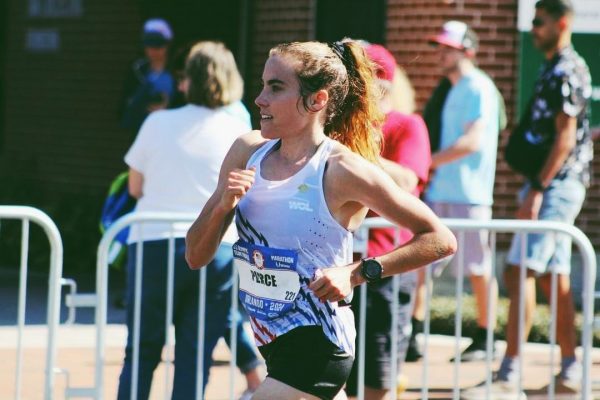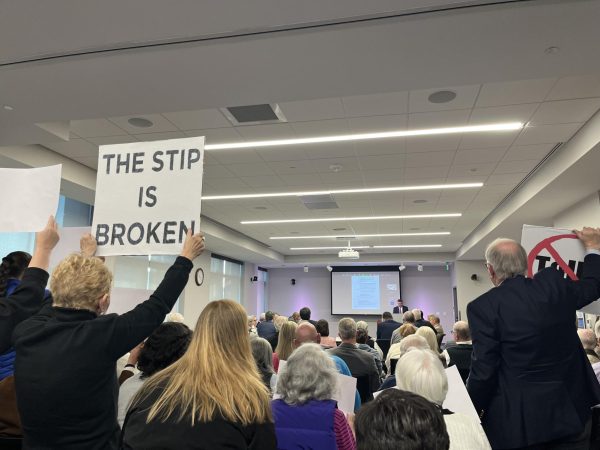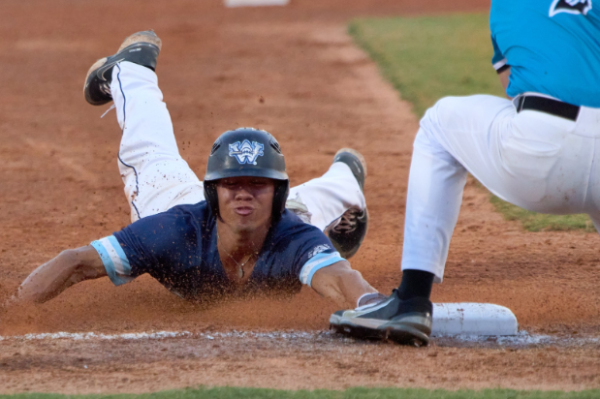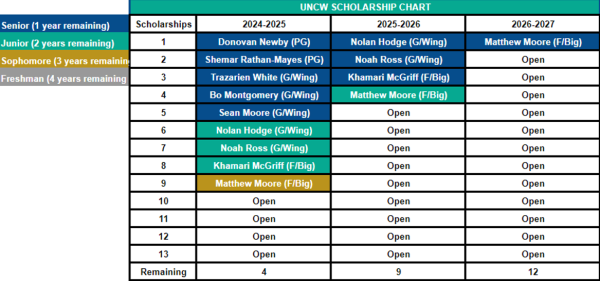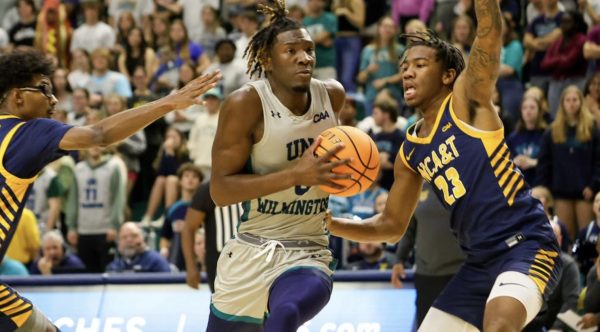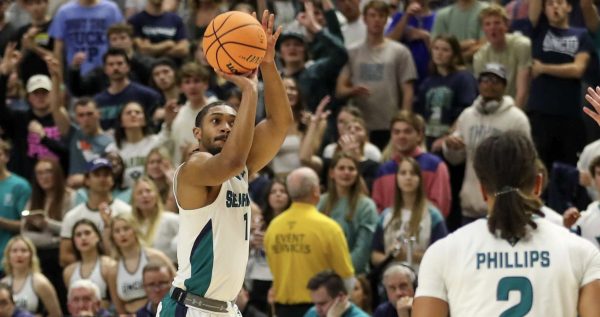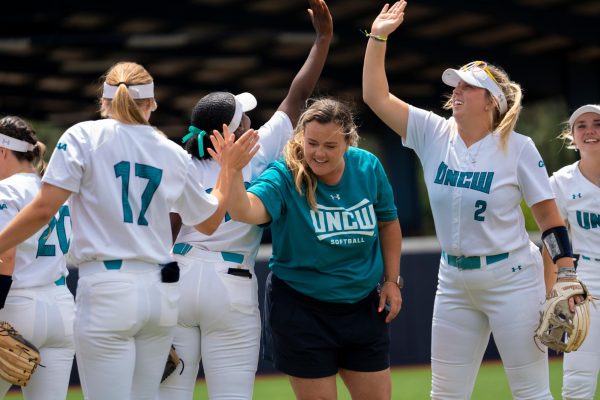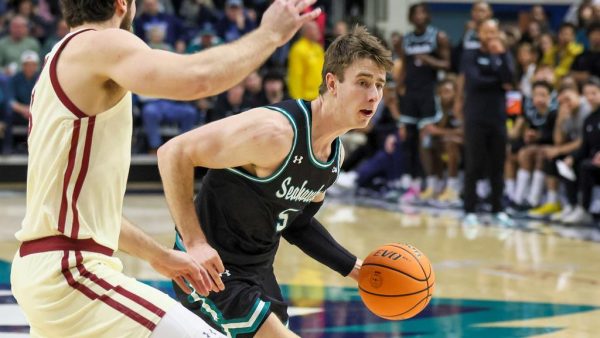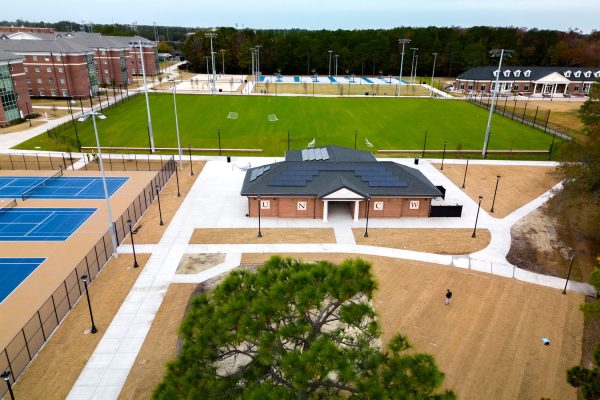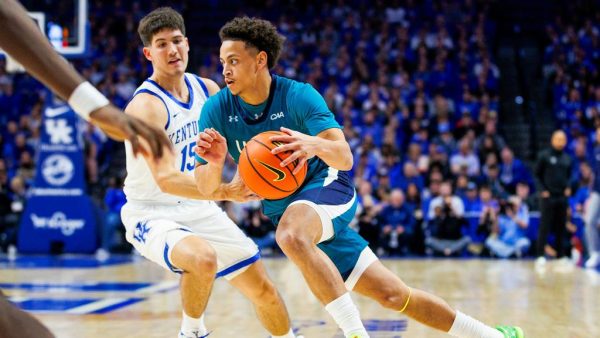Love ’em or hate ’em
March 31, 2011
In the sporting world, officials take on the role of the most loved and most hated individuals on the playing surface. In the event of a close call, one team is going to resent the officials, while the other embraces them.
No official wants to be remembered for making a bad call that changes the complexion of a game. Just ask Jim Joyce, the umpire who blew Detroit Tigers pitcher Armando Galarraga’s perfect game in the bottom of the ninth inning during the 2010 MLB season.
Officials withstand constant yelling by coaches and players, while having to stay focused on each intricacy of the game being played at a fast pace. It isn’t a job for the faint of heart.
The students who officiate for the UNC Wilmington intramurals program get a taste of that pressure-packed atmosphere in almost every game, albeit on a smaller scale.
Zach Gilbert, who has been UNCW’s assistant director of competitive sports since 2004, is responsible for the planning and facilitation of intramural sports on campus. He also is in charge of hiring each official.
“We recruit staff using publicity tables, flyers on campus, ads on Channel 77, internet advertising and word of mouth,” said Gilbert. “Interested students attend training clinics and are added to the payroll at the end of the clinic and begin working their chosen sport.”
The training clinics are mandatory for each student to become an official. They are normally two to three nights for three hours per night. Each official must then work a scrimmage game prior to the start of the season, where they are shadowed and assisted by a supervisor. There is also a rules test for each sport and officials must make at least an 80 percent on the test before they can work.
Currently, there are around 40 employed sports officials on campus, not including the students who are required to have 20 hours of officiating experience for Larry Honeycutt’s Athletic Officiating class. UNCW intramurals have continued to grow each year; however, the number of officials available to referee each sport hasn’t kept up with the growth.
“The biggest issue we are facing is a shortage of sports officials and facilities to meet the growth of our sports,” said Gilbert. “We are actively recruiting staff members to fill the needed positions and the expansion of the Student Recreation Center will help with the facility issues.”
UNCW students have approximately 30 different intramural sports available to them each year, including team sports and individual/duel sports. Seven of those require the use of officials: Soccer, 7-on-7 Flag Football, Volleyball, Indoor Soccer, Basketball, 4-on-4 Flag Football and Softball.
Gilbert believes being a student official is most difficult because they will often officiate games involving players they know, either from a class, dormitory or social group.
“The hardest part is making a call at 9 p.m. and then having class with the (same) team members at 9 a.m. (the next morning),” said Gilbert. “Officiating your peers is so difficult and learning to make the correct call in spite of the questions you will receive in class or the Hawk’s Nest is a tough lesson.”
Part of Gilbert’s job involves dealing with complaints from participants on a day-to-day basis, but the nature of the criticisms usually stems around the length of each intramural season and the effectiveness of the officials.
“The most feedback we receive centers on teams wanting more games and more consistency from our officials,” said Gilbert. “We are working to address both areas of concerns with the expansion of the Student Recreation Center and constantly evaluating our training methods to better serve our officials and participants.”
Some of the student officials have been officiating for multiple years and really enjoy the experience. Most would agree there are upsides and downsides to being a referee, but senior officials Brannon Teachey and Brittany Mills believe the good outweighs the bad.
“I enjoy being able to call a game correctly so players can play a game of basketball the way it is suppose to be played,” said Mills, who is also an intramural sports supervisor. “I do not enjoy refereeing participants who do not enjoy the game. That’s when participants begin to constantly debate calls and misuse rules.”
Teachey took a less objective stance of the pros and cons of officiating, citing the relationships that can be formed from referring and the sometimes long work hours.
“I like meeting different students that I would never get to meet that are not already in my major,” said Teachey. “And I don’t like having to work until midnight some nights of the week.”
Handling heated participants during the course of play is all part of the official’s job and some of the players are willing to admit they have the tendency to cross the line in the heat of battle.
Gilbert encourages the enforcement of technical fouls and unsportsmanlike conduct penalties in all of the officiating clinics. He believes sportsmanship and protecting the officials is important in every game.
“I have received a few unsportsmanlike penalties and technical fouls while playing intramurals,” said junior Ryan McCarthy, who has played flag football and basketball the past three years. “I get a little too competitive sometimes and I will occasionally yell at a referee or two.”
Stereotypical evaluations of officials are constant on all levels of officiating. Judgments on how effective an official will be are often made prior to the first team having possession of the ball, a situation that Mills believes reigns true for female officials at UNCW.
“Being a woman referee has taught me a lot. Unfortunately, most people walk in and see a woman referee and automatically assume I will be terrible,” said Mills. “Because some participants have that attitude, I have to call everything with more confidence and certainty in order to gain control of the game and prove that I can perform my job to the fullest.”
Intramural officials like Mills and Teachey admit they aren’t perfect and that they miss calls in almost every game. They just want to be respected because they are students just like the players they are officiating and they aren’t getting paid the “big bucks.”
The abuse officials take isn’t only evident to them, but many of the participants see the mistreatment as well.
“I don’t know how they do it,” said junior Chris Anstine, who has been playing intramural basketball for three years. “Some guys get right up in their face and start cursing at them. It’s crazy. Some people are ridiculous.”
Mills and Teachey agreed that most of the participants do not disrespect their authority or disobey the rules. Many times, the participants will come up to them after a game, shake their hand, thank them and tell them they did a great job.
“It’s a great feeling to know that you did your job to the best of your ability,” said Teachey. “You called the fouls correct, both teams noticed it and (they) like you officiating the sport they play.”
Gilbert is looking to add new officials to the employment list each semester. Currently, officials are paid eight dollars an hour and all games are held on campus. Officiating clinics for flag football, soccer and volleyball will start next semester. Any student interested should contact Gilbert or visit the student recreation center for more information.
“It is a great job to have. All of the games are on campus and you get to work with sports each night,” said Gilbert. “You learn a lot of important skills such as communication, conflict resolution and leadership that will serve you well in your life at and beyond UNCW.”








